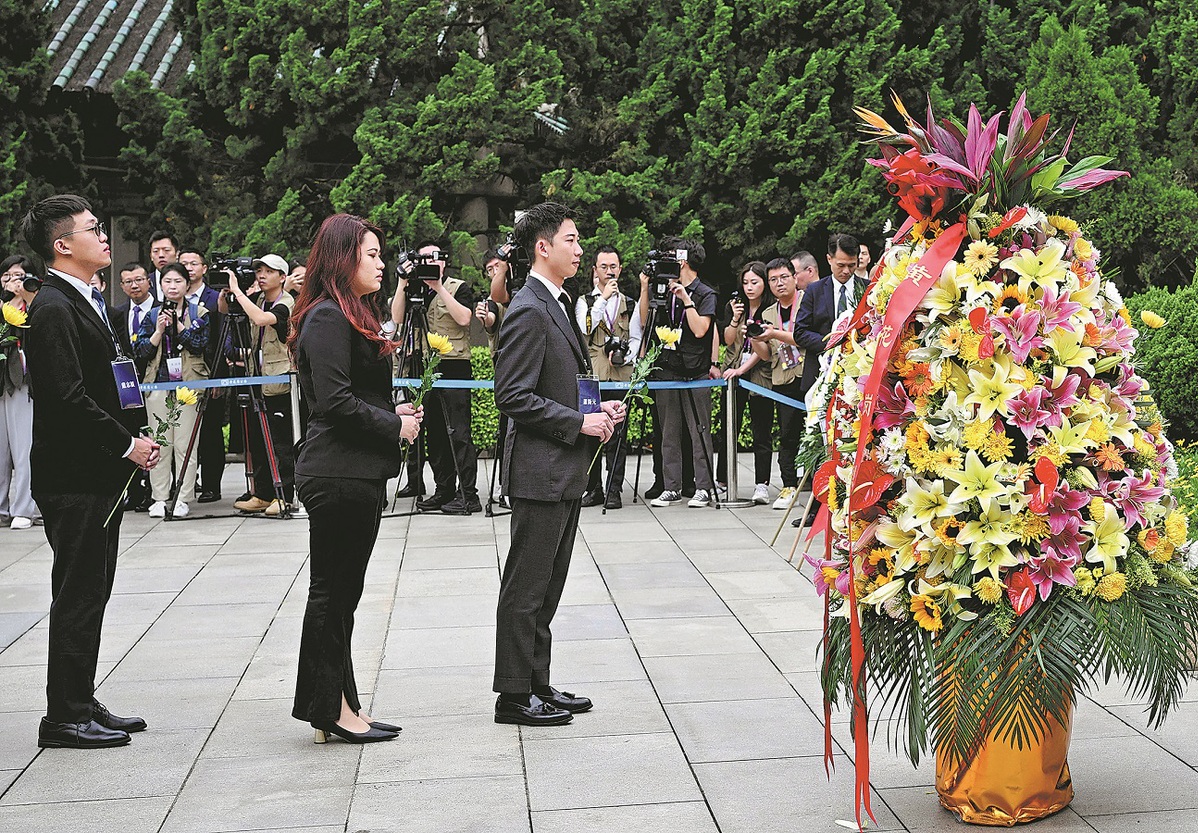Realities of similarities hit home with Taiwan youths
Cross-Strait exchange allows them to witness history, mainland's modernity


University connections
Peking University was the destination for the second youth exchange event during Ma's visit, where Taiwan youths met with a group of their mainland counterparts who had visited Taiwan in July last year.
After the event at Peking University, the youths from the mainland and Taiwan went to the student canteen for dinner.
There, Peking University student Wu Jiayi and Taiwan youth Liao Shin-hua played piano pieces including Dao Xiang, or Fragrant Rice, and performed a joint piano rendition of the traditional Chinese song Jasmine Flower.
Taiwan singer Jay Chou wrote Dao Xiang for people affected by the devastating Wenchuan earthquake in 2008. Tragically, several days before the Peking University exchange, a magnitude 7.3 earthquake struck Hualien in Taiwan, killing 10 people and injuring more than 1,000.
It was clear that the Taiwan youths understood they had the sympathy of their mainland counterparts who expressed their concern for people in Taiwan.
At about 10 pm the night before the joint piano performance, I had seen Wu in the lobby of the China World Hotel where Ma and the Taiwan youths were staying. I was touched when I realized that she had traveled into downtown Beijing to rehearse the duet with Liao.
There were many tourists in the lobby around midnight who may have wondered why two musicians were playing at such a late hour. However, they were just two regular students from across the Strait making the effort to rehearse a duet.
Liu Ping-jui, the head of the Taiwan youth group, said the cross-Strait youth exchange had gone smoothly because of the shared language and culture, which allowed discussions on various topics such as history, culture, cuisine, and learning. "Interaction between people is felt with the heart, so the exchanges between young people from both sides of the Strait will not be restricted by too many other factors," Liu said.
























